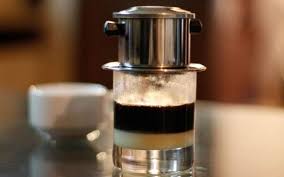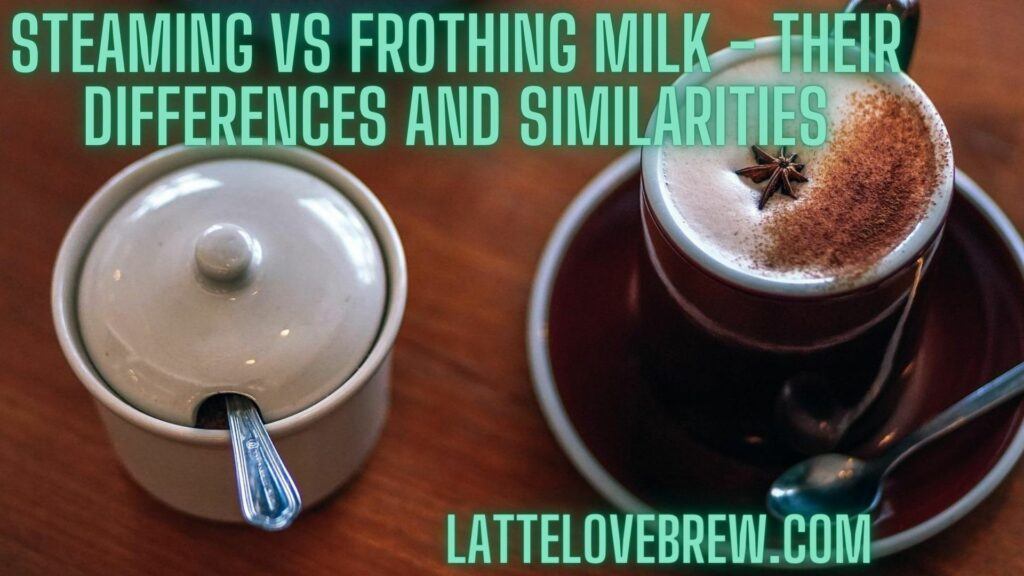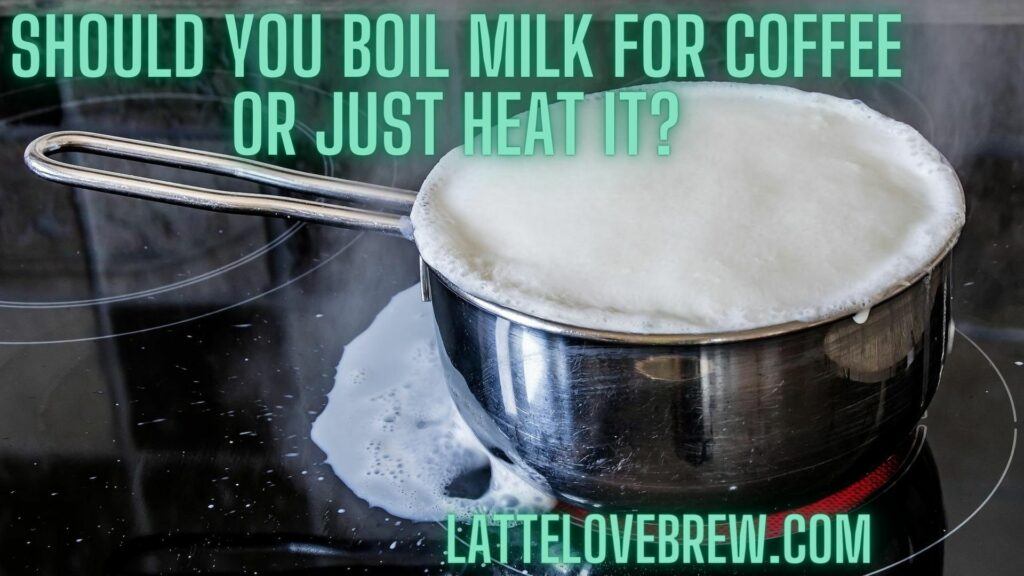Last updated on January 22nd, 2024 at 13:36
What is Vietnamese coffee is something you could literally write an entire book about. The history, the cultivation, the coffee culture in the nation and how it is brewed.
Despite coffee not being a native species, ohh boy, the local Vietnamese have certainly carved out their own corner in the coffee world with their fantastic coffee creations.
Keep reading to find out more about Vietnamese coffee!
What Is Vietnamese Coffee?
Table Of Contents
- 1 What Is Vietnamese Coffee?
- 2 Vietnamese Coffee Maker – The Phin Filter
- 3 Vietnamese Coffee Beverages
- 4 Is Vietnamese Coffee Strong? – Vietnamese Coffee Caffeine Content
- 5 Is Vietnamese Coffee Sweet?
- 6 Frequently Asked Questions About What Is Vietnamese Coffee
- 7 Final Thoughts – What Is Vietnamese Coffee?
Well, going back to the very beginning. Coffee is not native to Vietnam, which is something that is incredibly surprising considering Vietnam has one of the most fantastic, unique and quite brilliant coffee cultures.
Vietnamese coffee culture is best describes as a coffee counter culture as they do with coffee some incredibly unthinkable things that, by all means should not work, but does work.
In fact, the Vietnamese pull it off amazingly well!
I’m talking about egg in coffee, salt in coffee, yogurt, avocado, banana, orange, durian, coconut and all kinds of fruit as well having the sheer audacity to brew with tonic water in their famed tonic coffee.
That is not to mention they have their own rather iconic and stand out coffee brewing method, the phin coffee filter which takes the best of the French press full immersion steeping of the coffee grounds and drip coffee.
The brewing of phin coffee is a cultural experience in itself.
In the hustle and bustle of a hot afternoon in the sprawling Asian metropolis of Ho Chi Ming City or Hanoi, everywhere across the backstreets you’ll see men and women of all ages kicking back, relaxing, almost like a kick back to the post-industrial era, watching life go past as their coffee drips slowly from the iconic stainless phin coffee maker.
If ever you are in Vietnam it is a must!
Coffee was brought to Vietnam in 1857 by French missionaries but took some 31 years to set up the first coffee plantations in Quảng Bình and Ninh Binh provinces of the Tonkin.
The first coffee plants were predominantly the Arabica variety, now today, the Robusta variety dominates Vietnamese coffee production.
In fact, Vietnam is now the second-largest exporter of coffee in the world behind Brazil and the largest exporter of robusta coffee beans.
It is fair to say that Vietnam took to coffee like a duck to water!

Read: How to make Vietnamese coffee
Coffee Production In Vietnam
Vietnam accounts for almost 20% of all coffee exports globally. As coffee exports go, Vietnam is the second largest coffee producer behind Brazil – where, like Vietnam coffee is not a native species.
What stands out with coffee production in Vietnam is their dominant variety grown is the low maintenance robusta variety. The South East Asian nation is now the largest coffee producer and exporter of robusta beans.
Vietnamese coffee production suffered badly during the Vietnamese war (which is called locally in Vietnam the American war) and did not start to recover until the early 1990s due to political and economic reformations and edging into the specialty coffee markets and riding on the third wave of coffee.
Where Is Vietnamese Coffee Grown?
Vietnamese coffee is grown all over the country with the main production happening in the Central Highlands. The coffee is grown in basalt soil, which is Volcanic soil.
This soil type produces high quality coffee due to being mineral rich and perfect for the cultivation of coffee, pepper and cocao.
Vietnamese Beans
Vietnamese mainly grow robusta coffee which is known for being strong and bitter. Vietnamese coffee is highly caffeinated for this reason, and due to the fact that their referred brewing method, the use of the phin coffee filter, being great at extracting the caffeine.
The Robusta coffee is preferred due to being easier to grow and more resistant to disease.
Arabica Vietnamese coffee is available, simple it is less common.

Read: Cafe phin Vietnam
Roasting Vietnamese Style
The Vietnamese have a strong preference for roasting their coffee beans in the way that the French do, to a dark roast level and with chicory.
Other flavors are known to be added including mocha, vanilla and butter.
Vietnamese Coffee Maker – The Phin Filter
The Vietnamese coffee phin (Ca phe phin) is a stainless steel device with 4 distinct parts. The brewing chamber, the base plate, strainer and the lid.
It’s somewhat of an iconic device that sits on top of your cup and drips strong and freshly brewed coffee into the cup below. It’s a unique way of brewing coffee like a Hario V60, an Aeropress or Moka pot, unique in its own right.
It’s not drip coffee as a fresh flow of hot water is not used. It’s not pour over for the same reason. It’s not French press either as the coffee steeps then drips through the filter.
The phin filter is a unique device and was brought to Vietnam by the French colonialists and is seen at every Vietnamese coffee shop.
Vietnamese Coffee Beverages
As I touched on earlier, Vietnam has a coffee culture that you have not seen anywhere else in the world. Coffee innovation is taken to new heights, and fantastically so!
Forget the fact that they make coffee with condensed milk – something that is popular in Spain too, or the use of Alcohol like Irish cream, whiskey, grappa or a shot of brandy, or any of the commonalities that you will find in Europe, the US and beyond.
I’m talking about egg, fruit, coconut or yoghurt and, yes even salt – crazy combinations that by all stretches of the imagination should not work…but does!
These coffee beverages are popular with the Vietnamese, foreign visitors and expatriates. At first the idea may sound odd, disgusting to most and a plain no for coffee snobs.
But when they try them out, they love them!
This coffee creativity started in the early to mid 1940s after the nation was hit with a milk shortage and locals were looking for a cheap substitute due to the shortage of milk.
…and their cà phê trứng was born, the egg coffee.
After that successful creation, the famous Asian culinary skills went to work and went wild!
Coffee with fruits like avocado are a healthy start to the day or as an afternoon pick me up, far better and healthier than a sugary soft drink or energy drink. Like a yoghurt coffee, they serve as a nice afternoon snack or a quick breakfast on the go for weight loss.
The egg coffee, fantastic on its own or aas a dessert, a nice treat. Coconut coffee, cà phê dừa, a great cool down on a hot, hot day.
And all we have to thank is a milk shortage for letting us know that coffee and fruit are the best of friends and make a great standout and healthy drink to enjoy.
Here are some amazing Vietnamese coffee creations to try.
- Cà Phê Trứng – Vietnamese egg coffee.
- Cà Phê Dừa – Vietnamese iced coconut coffee.
- Cà Phê đá: Black coffee with ice.
- Sữa Chua Cà Phê – Tasty Vietnamese yoghurt coffee.
- Cà Phê Sữa Đá – Classic Vietnamese iced coffee with milk
- Sinh Tố Cà Phê Chuối Bơ – Banana and avocado coffee smoothie
Salt coffee?
Salt, only a touch, a tiny, tiny dash is used to take the bitter taste away from strong black coffee. Salt is also used to freshen up stale coffee beans. Again only a sprinkling is used.
Coffee Confession: After 3 years in the great coffee nation of Vietnam I have grown to adapt and change my morning and afternoon coffee to be one that includes fruit and a shot of coffee.

Read: Cafe phin
Is Vietnamese Coffee Strong? – Vietnamese Coffee Caffeine Content
Yes,
Vietnamese coffee is strong and bitter. A 4 oz Phin coffee has on average 100 mg so, despite the small sized serving, keep in mind that it packs as much of a punch as an 8 oz French press and 8 Oz drip coffee and on a per-volume basis has the same amount of caffeine as percolated coffee.
Is Vietnamese Coffee Sweet?
Vietnamese coffee is bitter and notably so, much more than regular coffee. It is sweet only when the condensed milk is added. Which is why the Vietnamese use sweetened condensed milk.
Frequently Asked Questions About What Is Vietnamese Coffee
What Is Different About Vietnamese Coffee?
Vietnamese is predominantly made with dark roasted Robusta coffee beans which are often roasted with chicory. The beans are roasted at a low temperature and for approximately 15 minutes.
Coffee is not a native product to Vietnam, it was brought to the country by the French Colonialists in the 1800s, which explains their preference for a European style roast, rather than an American style.
The brewing style with a preference for their traditional coffee drip, the coffee phin has a contributing factor as it is a unique brewing method that is neither a drip coffee nor a French press but combines elements of both.
How Is Vietnamese Coffee Different From Regular Coffee?
Vietnamese coffee is different from regular coffee as it is stronger and has a more pronounced bitter taste than regular coffee. It is stronger and more flavorful and brewed using the iconic stainless steel Vietnamese coffee filter.
It is very common for condensed milk to be used to make sweet coffee with a thicker texture.
What’s So Special About Vietnamese Coffee?
While Robusta coffee is the most popularly available coffee in Vietnam, Arabica coffee is also available.
The best Vietnamese Arabica coffee is from Da Lat, a city nestled high in the central Highlands and is a medium roast. It produces a full-bodied coffee that is lively and rich with hints of caramel, vanilla and is lightly chocolatey.
The Arabica variety is more flavorful and less caffeinated than Robusta beans. Vietnamese Arabica coffee beans are peculiarly smoother than other Arabica beans.
Is Vietnamese Coffee Stronger Than Regular Coffee?
Yes, Vietnamese coffee is undoubtedly and unquestionably stronger than a regular coffee. There are a couple of reasons why. The beans used are predominantly Robusta coffee beans which have on average 2.2x more caffeine than regular coffee beans.
Also,
the brewing method used, the Vietnamese coffee filter, the phin filter coffee, is very good at extracting the flavor and caffeine from the ground coffee beans.
Why Does Vietnamese Coffee Have So Much Caffeine?
The predominating reason behind Vietnamese coffee having a lot of caffeine is the fact that they brew with robusta coffee beans. It is well known and well established that Robusta beans have a lot more caffeine – more than double the amount of an Arabica beans.
Also, the phin filter method, somewhat a mix of the full immersion steeping method that you see with a French press and a drip coffee and is understandably good at extracting the caffeine from the beans.
How Is Vietnamese Coffee So Thick?
Vietnamese coffee is thicker due to the use of condensed milk which adds to the mouthfeel and texture as well as creating that heaviness. Vietnamese beans, when a robusta is used are bitter, the use of sweetened condensed milk dampens the bitterness and makes it sweeter and more savory.
Final Thoughts – What Is Vietnamese Coffee?
What is Vietnamese coffee on the surface sounds like something that is easy to answer, right?
Coffee from Vietnam?
It is much more complex than that. Vietnamese coffee is a whole new and vibrant coffee culture that is centered around healthy and nutritious coffee beverages. I encourage you to be experimental and try one of the fruit smoothy style coffee beverages.
You never know, they are absolutely tasty.
Love coffee?
Join our vibrant coffee community on Facebook/Meta and share your Vietnamese coffee creations, recipes and motivate the community to good health through coffee smoothies and your own great ideas.







